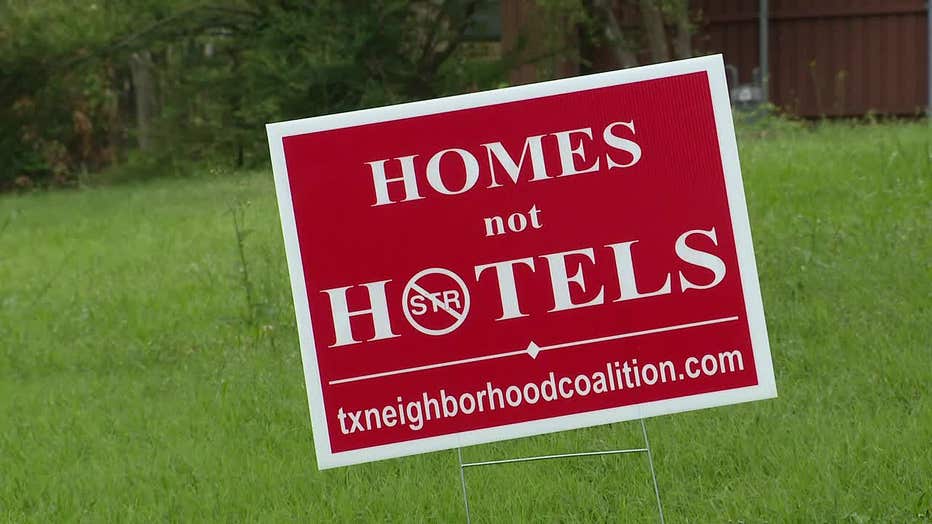Dallas short-term rental owners look to block ordinance that adds restrictions
Ordinance over Dallas STRs goes before judge
Nearly all short-term rentals, Airbnb and Vrbo, could soon be banned in the City of Dallas. A hearing to temporarily block a new city ordinance was held on Friday, just weeks before it goes into effect.
DALLAS - The immediate future of most short-term rentals (STR) in the City of Dallas is being decided inside of a Dallas County courtroom.
Judge Monica Purdy is presiding over the case.
"We argue that STR is a vested, fundamental right of a part of homeownership in Texas as the Supreme Court has defined that," said David Coale, an attorney for the plaintiffs, who are short-term rental owners.
Coale is seeking a temporary injunction against new rules that were approved by the Dallas City Council in June and enforcement is expected to start in December.
"We contend this law is too broad it does too much to solve a handful of bad apples causing problems," he argued.
The City Council approved changes to zoning rules that ban short-term rentals, like Airbnb or Vrbo, from operating in single-family neighborhoods.
The move came in response to years of complaints from homeowners that some STRs have been linked to gun violence, trash and other quality of life concerns.
"The city has done three different separate reports that say over 88-percent of us have zero 311 and zero 911 calls," said Lisa Sievers.
Sievers, who owns two STRs in East Dallas, testified in court on Friday.
She believes lawful operators are being penalized due to what she sees as a small minority of problematic properties.
"All of a sudden, we get banned. 94 percent of us are banned out of existence, leaving 48 short-term rentals. That’s not fair," Sievers argued.
Dallas homeowners, like Dolores Serroka, see things differently, pointing to problems she's experienced with STRs.
"Things would disappear from around the driveway, our sprinkler has been compromised, you know, parties," she said.

Serroka is part of the Dallas Neighborhood Coalition, whose catchphrase is "Homes Not Hotels."
City officials estimated more than 5,000 STRs operate in Dallas.
She and others in the coalition believe they've gotten out of control and want to see the new rules governing STRs go into effect.
"The case is people are coming and going, and we don’t know what’s going on in the neighborhood anymore," Serroka said.
The city attorney's office declined to comment on the case, citing the pending litigation.
There's no telling when the judge could issue her ruling, but it will be before Dec. 13, which is when enforcement of the new ordinance banning most STRs is set to begin.


